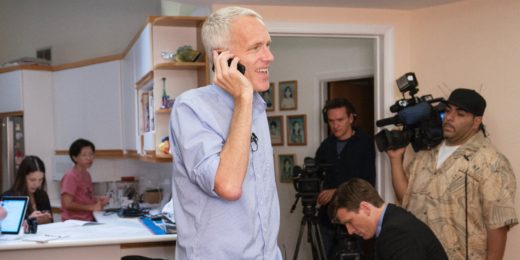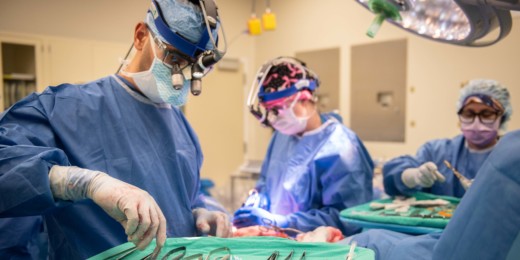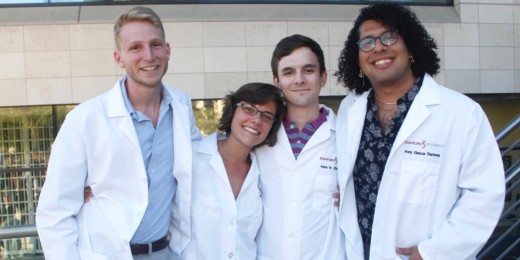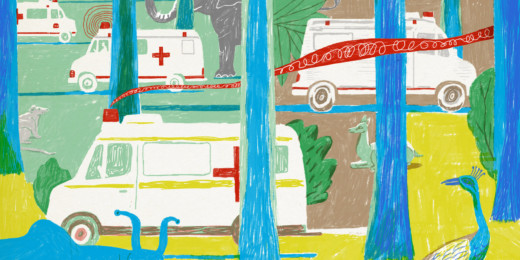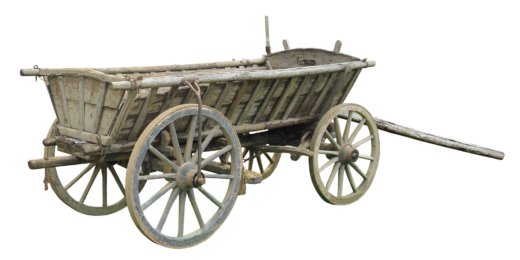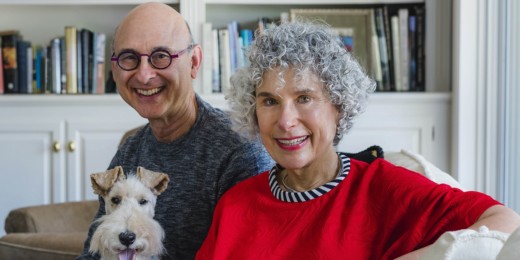Answers to a quiz on Stanford Medicine's eight Nobel laureates, recognized for contributions in physiology/medicine, chemistry and physics.
Month: September 2018
Ready for the Nobels? Warm up with this quiz on Stanford Medicine’s laureates
Test your knowledge about the eight Stanford Medicine researchers who have been awarded a Nobel Prize in the medical school's 110-year history.
If I knew then what was to come: The importance of getting a colonoscopy
In this essay that originally appeared in Months to Years, writer Mal Schoen describes how he was diagnosed with colon cancer.
Understanding AFib: A heart dancing without rhythm
In the first of a series on atrial fibrillation, physician Randall Stafford explains the condition and how it increases the risk of stroke.
Bending time to benefit patients
A Stanford study finds that the kinder a health provider seemed to a patient, the more time the patient felt was spent on them.
For new PhD students in biosciences, lab coat ceremony marks the beginning of discovery
A new class of PhD candidates in the Stanford Biosciences received their new lab coats as part of an official welcome ceremony this week on campus.
From California, to the world: Stanford Medicine aims to help 2 billion people
The latest issue of Stanford Medicine magazine features an article describing international efforts to help 2 billion people globally by 2025.
Poked, scoped, and doped: Should medical students experience the pains of their care?
A Stanford medical student discusses her take on whether doctors in training should “play” the patient.
Smuggling RNA into cells can activate the immune system to fight cancer
Hiding mRNA messages in CARTs — positively charged degradable vehicles —smuggles them across the cell membrane and can 'vaccinate' against cancer in mice.
Looking beyond opioids: Stanford pain psychologist briefs Congress
Stanford pain specialist argues for comprehensive and personalized treatments as Congress considers legislation to combat the opioid crisis.
Who is the designated driver, or proxy, for your health decisions?
A recent Stanford study found that patients and their health care proxies have divergent opinions on specific health care practices.
Pawnshop density linked to gun-related suicides, Stanford study finds
Researchers found a strong correlation between the density of legal gun sellers — particularly pawnshops — in a state and firearm-related suicide rates.
Bill for later school start times is defeated, but Stanford sleep specialist isn’t
Despite strong medical evidence, a California bill to delay school start times is defeated. But Stanford sleep specialist Rafael Pelayo isn’t giving up.
Tallness linked to varicose veins, Stanford study says
The taller you are the more likely you are to get varicose veins, according to Stanford study that researched the genetics of half a million people.
Trying to get answers: One woman’s quest for a diagnosis
After a year of baffling symptoms, two Stanford specialists pieced together the puzzle of this woman's disease.
The current fellowship interview process is cumbersome — Stanford researchers have a better idea
Three Stanford researchers are suggesting a new way to match fellowship candidates with programs for interviews, with the goal of saving time and money.



